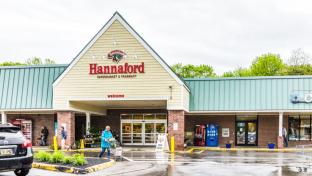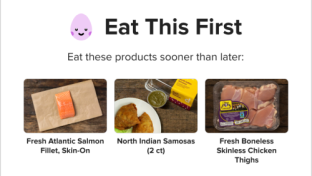News Briefs
- 4/24/2022
DemandTec Optimizing Pricing With New Platform

Retail pricing technology company DemandTec by Acoustic has launched a new AI-powered price optimization platform, Autonomous Pricing On Demand. The technology allows mid-market retailers to better respond to market and consumer behavior fluctuations.
Capabilities include intelligent pricing across zones and categories, weekly price optimization recommendations, a dedicated pricing team, time-to-value in four to six weeks, and annual subscription-based pricing.
According to the company, the solution eliminates cost, training, and resource barriers, as well as improves price perception to grow revenue up to 3% and margins up to 5%.
[Read more: Five Truths, No Lies]
“Competing in today’s economy — riddled with record-breaking inflation, growing consumer price sensitivity, and continuing supply-chain challenges — is increasingly difficult,” said Anis Hadj-Taieb, general manager for DemandTec. “Retailers of all sizes need access to AI-powered capabilities to rapidly respond to changes in the market and consumer demand with intelligent pricing.”
- 4/24/2022
Walt Disney Company Opens Applications for Accelerator Program

Growth stage companies looking to transform the technology and entertainment space can now submit applications for The Walt Disney Company’s Accelerator program. Now in its seventh year, the program is taking applications until May 13, and is looking to accelerate the growth of innovative companies from around the world.
Disney is focusing on companies that are innovating in areas such as artificial intelligence, data and analytics, immersive experiences, machine learning, personalization, robotics, sports tech, and web3. Program participants will be able to connect with experts at Disney to receive guidance on their tech.
[More on tech: Yum Brands, Danone, Kellogg’s Tech Leaders Join Analytics Unite 2022]
Past participants include CAMP, the Family Experience Company, which launched in December of 2018 and was an RIS Hot Retail Startup in 2020.
“The Disney Accelerator introduces us to visionary companies that are leading innovators in their respective industries,” said Bonnie Rosen, general manager of Disney Accelerator. “We are looking forward to this year’s program and can’t wait to connect with the next generation of talent that will help us make bold decisions and identify new opportunities for innovation at The Walt Disney Company.”
The Disney Accelerator program will kick off in July, closing with a Demo Day in the fall. Applications are being accepted here.
- 4/20/2022
Home Depot Names Fahim Siddiqui EVP and CIO, Matt Carey EVP Customer Experience

The Home Depot recently announced two leadership hires, naming Fahim Siddiqui executive vice president and chief information officer and Matt Carey as EVP of customer service.
Siddiqui will lead the company's tech strategy, infrastructure and software development for its 2,317 retail stores, supply chain facilities, store support centers, and online systems.
He joined The Home Depot in 2018 as SVP of information technology, developing applications and solutions for online, marketing, merchandising, supply chain, data, and analytics. He also managed the buildout of a central platform of common services to improve the customer experience.
Prior to The Home Depot, he spent more than three decades leading software development in the retail, energy, and telecom sectors, including Staples, MCI, Time Warner Telecom, and Sprint
"Fahim is a tremendous leader and a brilliant technologist who understands the power of technology to unlock a better experience for our customers and associates, and I look forward to working with him in this next phase of growth for The Home Depot," said Ted Decker, CEO and president of The Home Depot.
As EVP of customer service, Carey will lead the vision, design, and development of new consumer experience solutions across stores, online, or mobile.
Carey served previously as SVP and CTO at eBay, where he oversaw product development, site operations, cybersecurity, platform engineering, data warehousing, and catalog operations for eBay Marketplaces. Prior to joining eBay in 2006, he spent more than 20 years with Walmart, where he was SVP and CTO.
Decker stated that Carey has spearheaded “an enormous technology transformation” across the company’s stores, supply chain, merchandising, and digital presence.
"Now more than ever, our customers expect to shop with us how, when, and where they want — and there's little tolerance for friction in the shopping experience,” said Decker. “Matt has a proven track record driving customer-first technology innovation."
- 4/19/2022
Crocs Taps Danone’s Deanna Bratter to Lead Sustainability Efforts

Casual footwear brand Crocs, Inc., has created a new role: vice president of global head of sustainability.
Deanna Bratter will assume the new role, responsible for helping the company achieve its goal to be net zero by 2030, as well as enhancing commitments and impacts across environmental sustainability, social responsibility, and corporate governance (ESG).
Prior to joining Crocs, Bratter was the vice president of sustainable development/One Planet. One Health at Danone North America. In that role, she oversaw the company’s push to address climate change, focusing on responsible sourcing, the restoration of natural ecosystems, sustainable packaging, and community support.
Bratter also previously led corporate sustainability for WhiteWave Foods, managing the company’s annual CSR and ESG reporting.
"Consumers are keenly focused on purpose, inclusivity and a sustainable future, and Crocs has set clear ambitions to integrate sustainability into every part of their business and products," said Bratter. "This is an iconic brand, and I am thrilled for the opportunity to apply my experience in creating more sustainable systems to Crocs, bringing collaborative and innovative solutions in an effort to ensure we meet our commitments and create a more sustainable and comfortable world for all."
Last year, the company committed to reducing its carbon footprint to become a more sustainable brand, outlining its strategy. Since then, the brand has transitioned to sustainable ingredients across its product lines. Changes were also made across the company’s packaging, looking at new ways to give Crocs a second life, transitioning to renewable energy, and investing in responsible resource use.
Crocs CEO Andrew Rees said that climate change is an urgent issue that requires “meaningful and rapid action.”
"We have an equal responsibility to ensure we're doing our part to create a more comfortable world," added Rees. "We are excited to welcome Deanna into this key leadership position and are confident that her deep experience and expertise will help Crocs achieve its ambitious sustainability goals."
- 4/18/2022
Hannaford Supermarkets Plans 100% Renewable Energy

As part of its sustainability strategy and in recognition of Earth Month, Hannaford Supermarkets said it plans to be fully powered by renewable energy by 2024.
“Doing what’s right for our business includes doing what’s right for our associates, community, and our planet. Powering Hannaford with 100% renewable energy sources will make an immediate, positive impact on greenhouse gas emissions,” said Mike Vail, president of Hannaford Supermarkets. “This is an important leap forward in our sustainability journey—and one that we hope sparks others to join. Prioritizing the health of our communities and the planet is a win for us all.”
Supermarkets are energy intensive due to simultaneous needs of heating and cooling. To reduce energy consumption and make the best use of the energy being used, Hannaford has implemented energy efficiency projects like LED lights, night shades, doors on cases and state-of-the-art refrigeration systems—and has rooftop solar on 10 of its stores.
“Hannaford is light years ahead of the rest of the industry when it comes to their sustainability efforts—and they’ve been doing so for well over a decade,” said Peter Cooke, cofounder of the Ratio Institute, an independent, non-profit organization dedicated to accelerating measurable sustainability and viability in food retail. Cooke has worked with more than 1,000 grocery stores and 15 grocery chains as part of his Grocery Stewardship work. “Hannaford associates continue to rally behind making the company more sustainable and that is an advantage to their current and future success in making the planet healthier and greener.”
Currently, Hannaford operates at 30% renewable energy by partnering with over 30 community solar projects across Maine, Massachusetts, and New York.
Since the beginning of the decade, Hannaford has worked to reduce its energy consumption and converted 86.4MW of its remaining electricity usage to solar — enough electricity to power 16,000 typical homes for a year. Continuing to operate some of the most energy efficient stores in the northeast, Hannaford will couple their efforts of upgrades and conversions with integrating community and large-scale solar projects in Maine and New York to propel stores to the 100-percent-green milestone by 2024.
“Hannaford has always been serious about sustainability—and over time, it’s become an integral business function. But there is a sense of urgency as we witness the planet in the midst of a climate crisis,” said George Parmenter who leads sustainability efforts for Hannaford. “Hannaford wants to lead where we can make the most impact—and renewable energy is just another step in our journey.”
According to a recent report by the United Nations on climate change, “harmful carbon emissions have never been higher in human history …[and] scientists are urging ‘now or never’ to limit global warming…”. Report findings indicate that achieving net zero carbon dioxide emissions globally by the early 2050’s is the way to stabilize global temperatures and carbon dioxide emissions.
Hannaford, an Ahold Delhaize USA brand, has committed to be a net zero carbon business by 2040. A first step in that journey is to move to 100-percent renewable energy. Learn more about Hannaford’s sustainability efforts at Hannaford.com/sustainability.
- 4/17/2022
Grocer Farmstead Taps Proprietary Tech to Tackle Food Waste

National online grocer Farmstead is tackling food waste by reminding customers what groceries their refrigerator.
Farmstead is the first online-only grocer to have precise sell-by date inventory control and automated procurement systems for perishables. As a result, most products sold at Farmstead are sourced closer to customers. Taking this to the next step, Farmstead’s email receipts have now been updated with ‘Eat This First’ sections to alert customers when it makes sense to consume particular products sooner than later, hopefully reducing in-home food waste. For example, the receipt might remind a customer to eat the fresh salmon in their order first.
According to a survey from the US Department of Agriculture, the average U.S. household wastes 31.9% of the food that its members obtain. Food takes up more space in US landfills than anything else. Farmstead is powering a shift in food waste by using its own advanced technology and creating innovative features that can ultimately help the food industry.
“Food waste reduction has been a core tenet of Farmstead since our founding,” said Pradeep Elankumaran, co-founder and CEO of Farmstead. “We developed our own in-house logistics and inventory software specifically to reduce food waste in our own warehouses. While a typical grocery store has 30-40% food waste, Farmstead is in the single digits. In introducing ‘Eat This First,’ we’re extending that capability out to each customer. We are the only online grocer able to deliver it due to our digitized inventory control.”
“We have the precise technology and the data to help our customers reduce their food waste at home and we think the steps we’re taking will become a model for the grocery industry,” continued Elankumaran, “and we’re calling on all grocers to think about these important issues - as their customers already are.”
Farmstead customers are automatically signed up to receive the new ‘Eat This First’ receipts via email. Customers also have the option to opt-out.
Farmstead originally launched in the San Francisco Bay area, and soon expanded to Chicago, IL; Miami, FL; Charlotte and Raleigh-Durham, NC, with more cities to come in 2022. Farmstead offers a mix of local and national brands, no-fee delivery, convenience and fair prices. Customers can choose a same-day delivery slot for one-off, every day ordering, or sign up for a free once-a-week delivery on a regular schedule. All Farmstead deliveries are batched together with other orders in the same neighborhood, to reduce carbon emissions.
Farmstead stands out from other offerings by leveraging proprietary AI technology and a dark store model—delivery-centric warehouses that generally serve a 50-mile radius—to maximize efficiency and reduce costs. As a result, Farmstead offers prices comparable to or lower than most supermarkets, but with free delivery to doorstep. The company is growing quickly, with plans to expand nationwide to a primarily suburban, mid-market audience.
More than 70% of Farmstead customers eventually sign up for weekly deliveries, earning additional discounts on fresh staple products they purchase regularly, while getting guaranteed delivery windows each week.
Customers can sign up for Farmstead’s service at farmsteadapp.com.

